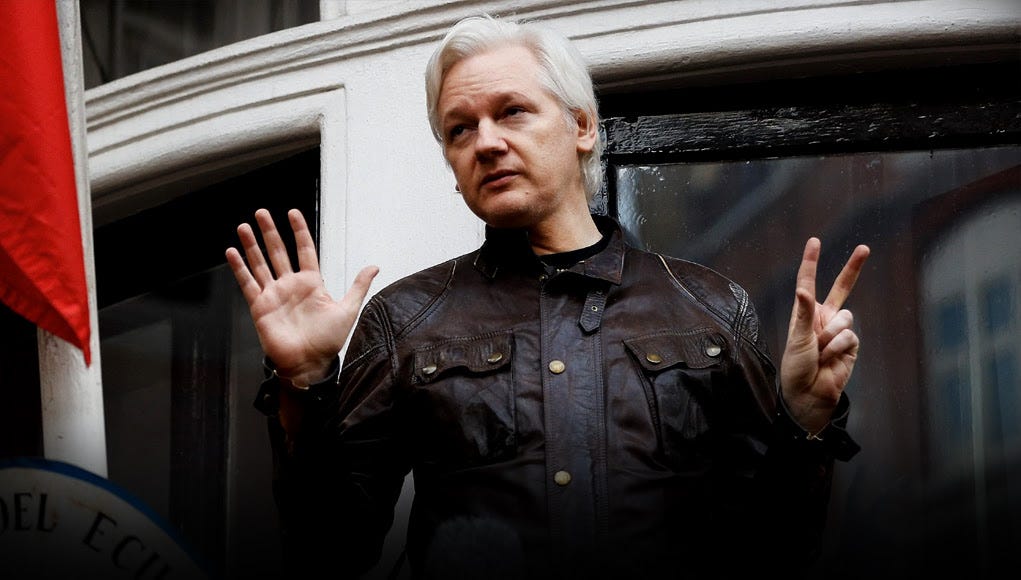Assange’s Last Appeal
Last week, Australian journalist Julian Assange’s legal team sought permission from the High Court of the United Kingdom to appeal his extradition to the United States, where he could potentially face severe penalties. This appeal represents Assange’s final opportunity to challenge his extradition within the UK’s legal system.
Assange has become a symbol of injustice, political persecution, and the fight for freedom of speech and press freedom. Behind the symbolic figure lies a human being languishing in the high-security prison.
The same week witnessed international outcry over the death of Alexei Navalny, who died in a Siberian prison. World leaders, including British Prime Minister Rishi Sunak, Canadian Prime Minister Justin Trudeau, and U.S. President Joe Biden, condemned Russian President Vladimir Putin for Navalny’s imprisonment, a man they consider a journalist who spoke out against the Russian President. They asserted that he was murdered, although they had no evidence to support this claim.
The United States’ criticism of other countries for jailing journalists is deeply hypocritical in the context of Assange’s case.
Assange has been indicted under the Espionage Act 1917, his alleged crime being publication of classified documents that exposed corruption, government misconduct, surveillance, and war crimes. The US government has focused on the publication of the documents, which it says exposed sources and personnel to danger. Both Republican and Democrat administrations have opted to use Assange as an example to deter other journalists from similar disclosures.
Supporters argue the documents were divulged by Chelsea Manning (who was convicted and then pardoned), and that Assange’s prosecution threatens freedom of the press. They contend that his actions as the founder of WikiLeaks were acts of journalism protected by free speech and the principles of press freedom. They insist he is being selectively targeted for political reasons rather than legitimate legal concerns, highlighting the discrepancy in treatment compared to other journalists and media organisations.
Granting leave to appeal would prolong Assange’s pre-trial detention, further deteriorating his health. Holding him in a maximum-security prison is normally reserved for those convicted of serious crimes, yet he has not been convicted of anything. There are no reasons why alternatives such as house arrest could not be employed.
Assange’s prosecution in the US raises concerns about government overreach, the chilling effect on free speech and journalism, and the erosion of civil liberties in the name of national security. The High Court must carefully consider the potential human rights implications of extradition, including the risk of cruel, inhuman, or degrading treatment. Assange’s status as a non-U.S. citizen complicates matters, as he lacks the same legal standing to claim First Amendment protections in U.S. courts, despite the global implications of his case for press freedom and whistleblowing activities.
Both Republican and Democrat administrations have opted to use Assange as an example to deter other journalists from similar disclosures.
The prolonged pre-trial detention of Julian Assange while awaiting an appeal also poses concerns for the rule of law and due process. In contravention of the presumption of innocence, Assange’s extended confinement undermines fundamental legal principles, casting doubt on the fairness and impartiality of the legal proceedings against him.
The United States’ criticism of other countries for jailing journalists is deeply hypocritical in the context of Assange’s case. The U.S. government’s pursuit of Assange undermines its commitment to press freedom and freedom of expression, both domestically and internationally. While condemning other countries for similar actions, the U.S. government fails to uphold these fundamental principles when it comes to Assange. By continuing to prosecute Assange and seeking his extradition, the U.S. undermines its own credibility as a champion of human rights and democratic values. The initiative by Presidential candidate Robert Kennedy Junior to petition for Assange’s release and pledge a pardon on the first day of his presidency serves as a compelling argument for his immediate release.
At this critical juncture in Julian Assange’s legal battle, mere appeals for justice fall short of addressing the urgent humanitarian issue. Assange’s deteriorating health underscores the immediate need for his release. The prolonged legal proceedings have taken a severe toll on his physical and mental well-being, making his continued detention untenable. It is evident that Assange’s health is rapidly deteriorating, and every passing day in detention further exacerbates his condition. The time for legal manoeuvring has passed; what is needed now is decisive action to rectify the grave injustice inflicted upon Assange and ensure his right to life, freedom, and dignity.
As we await the outcome of the High Court’s decision, we must remember that true justice can only be realised through the immediate abandonment of the extradition request and the immediate release of Assange.
The post Assange’s Last Appeal appeared first on Liberty Itch.



